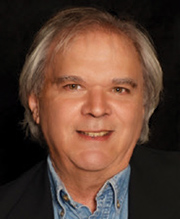Peer Support for Retirees with ADHD
Mark Katz, PhD
Attention Magazine February 2022
Download PDF
Among the innovative programs that participated in the 2021 Virtual International Conference on ADHD was a peer support group that focuses on the needs of retirees with ADHD.
 Known as the ADHD Retired Persons Weekly Check-In Group, its participants meet every Tuesday at noon (Eastern Time). The meetings are scheduled for ninety minutes, though they sometimes run longer. Participants are invited to join via computer, smartphone, iPad, laptop, or landline.
Known as the ADHD Retired Persons Weekly Check-In Group, its participants meet every Tuesday at noon (Eastern Time). The meetings are scheduled for ninety minutes, though they sometimes run longer. Participants are invited to join via computer, smartphone, iPad, laptop, or landline.
Sponsored by the Attention Deficit Disorder Association, which focuses on the needs of adults with ADHD, the group is offered free of charge to ADDA members. The ground rules that apply in the organization’s other virtual support groups apply in this group as well. Inappropriate forms of expression are not permitted. Mutual trust and open and honest communication between participating members is key to a successful group experience.
Scott Baird and Annette Tabor, both diagnosed with ADHD later in life, co-facilitate the weekly group for retirees. Annette serves on ADDA’s board of directors and chairs its education committee. Many years ago, she enjoyed being a CHADD coordinator in her home town of Coral Springs, Florida. Scott, a member of ADDA’s education committee, also helps to facilitate its meditation group and is an ADDA Ambassador.
Meetings provide participants with a sense of community, a sense of belonging, and a feeling of ongoing support. Participants also learn new ways to add structure to an unstructured day. This includes learning how to strengthen personal relationships, manage clutter, effectively complete daily tasks and routines, and start and keep healthy habits. They also have the opportunity to share specific ADHD-related challenges and learn new ways to successfully navigate around these challenges. Specific ADHD treatment options are discussed as well. Additional support during the week is available through a private Facebook group moderated by the group’s facilitators.
While peer support is important to quality of life for everyone, it is particularly vital for people who feel alone and isolated in their struggle to manage ADHD. “Regular peer support participation has been found to foster social networking, improve quality of life, promote wellness, improve coping skills, and support acceptance of an ADHD diagnosis,” says Baird.
Melissa Reskof, a former ADDA board member who was instrumental in helping to launch several virtual support groups, thinks the weekly group can serve as an important resource for retirees with ADHD. “So many ADHD retirees have little to no support system, especially widows and singles,” she says. “I hear about folks pairing off to do co-working for meditation, decluttering, and the like.” She also notes that the group provides the retirees connections to others with whom they can share what their day was like—someone who will hear them, someone who will give them an encouraging response. “When these things are missing, negative self-talk can increase, as can a host of emotional challenges,” she adds.
As more retirees with ADHD learn about this free resource, the group will inevitably grow larger. The facilitators are aware of this and are exploring how best to address the needs of newcomers while keeping the group size manageable. One option under consideration is to offer additional groups as demand increases.
 A clinical and consulting psychologist, Mark Katz, PhD, is the director of Learning Development Services, an educational, psychological, and neuropsychological center in San Diego, California. As a contributing editor to Attention magazine, he writes the Promising Practices column and serves on the editorial advisory board. He is also a former member of CHADD’s professional advisory board and a recipient of the CHADD Hall of Fame Award.
A clinical and consulting psychologist, Mark Katz, PhD, is the director of Learning Development Services, an educational, psychological, and neuropsychological center in San Diego, California. As a contributing editor to Attention magazine, he writes the Promising Practices column and serves on the editorial advisory board. He is also a former member of CHADD’s professional advisory board and a recipient of the CHADD Hall of Fame Award.
LEARN MORE
For additional information on the ADHD Retired Persons Weekly Check-In Group, go to https://add.org/adda-virtual-peer-work-group-retired-persons-weekly-check/ or contact co-facilitators Scott Baird (scott.baird@add.org) or Annette Tabor (annette.tabor@add.org).
See “Still Distracted After All These Years: Exploring ADHD After Sixty” by Kathleen Nadeau, PhD, in the April 2018 issue of Attention magazine (https://chadd.org/attention-article/still-distracted-after-all-these-years/) or watch her 2021 presentation on older adults with ADHD, available on YouTube: https://www.youtube.com/watch?v=AP1tOmtaX6c.
Other Articles in this Edition
Awkward in Social Situations? Ten Tips to Help
Key Challenges for Youth with ADHD During the Pandemic
Peer Support for Retirees with ADHD
As He Enters Retirement, Russell Barkley Looks Back
Challenges in ADHD Care for Children of Color
PART TWO
How to Help College and Grad Students Stay on Top of their Game
What the Pandemic Taught Us About Students with ADHD
Routines for Times of Uncertainty
Guiding Complex Teens and Young Adults to Launch
